Overview
This workshop brings together researchers from robotics, computer vision, and machine learning to examine challenges and opportunities emerging at the boundary between spatial perception and high-level task execution. Recent years have seen a growing interest towards metric-semantic understanding, which consists in building a semantically annotated (or object-oriented) model of the environment. This is pushing researchers from traditional research on SLAM towards more advanced forms of spatial perception. On the other hand, researchers have been looking at high-level task execution using modern tools from reinforcement learning and traditional decision making. The combination of these research efforts in perception and task execution has the potential to enable applications such as visual question answering, object search and retrieval, and are providing more intuitive ways to interact with the user. This workshop creates an exchange opportunity to connect researchers working in metric-semantic perception and high-level task execution. In particular, the workshop will bring forward the latest breakthroughs and cutting-edge research on spatial perception and high-level task execution. Besides the usual mix of invited talks and poster presentations, the workshop involves two interactive activities. First, we will provide a hands-on tutorial on a state-of-the-art library for metric-semantic reconstruction, which can be useful to both researchers and practitioners. Second, we will organize the GOSEEK challenge (details to follow), in conjunction with the release of a photo-realistic Unity-based simulator, where participants will need to combine perception and high-level decision making to find an object in a complex indoor environment.
Schedule
due to the coronavirus outbreak, the ICRA 2020 PAL workshop will be released as a collection of videos and advertised via Facebook/Twitter/Youtube. Feel free to follow @lucacarlone1 on Twitter for updates. The recordings will also be collected on the workshop website. On the day the talk is released, the speakers will also reply to questions on the ICRA 2020 slack workspace (channel #ws9).
| Date | Title | Speakers/Authors |
|---|---|---|
| June 10 | Workshop suspended for #ShutDownSTEM | https://www.shutdownstem.com/ |
| June 11 | Invited talk | Davide Scaramuzza and Antonio Loquercio (UZurich) |
| June 12 | Paper: Go Fetch: Mobile Manipulation in Unstructured Environments | K. Blomqvist, M. Breyer, A. Cramariuc, J. Förster, M. Grinvald, F. Tschopp, J. Chung, L. Ott, J. Nieto, R. Siegwart |
| June 13 | Tutorial: Kimera | Toni Rosinol & Andrew Violette (MIT) |
| June 14 | Paper: Goal-Aware Prediction: Learning to Model what Matters | Suraj Nair, Silvio Savarese, Chelsea Finn |
| June 15 | Paper: Locally Observable Markov Decision Processes | Max Merlin, Neev Parikh, Eric Rosen, George Konidaris |
| June 16 | Invited talk | Dhruv Batra (Georgia Tech) |
| June 17 | Paper: Scene Explanation through Verification of Stable Object Poses | Dominik Bauer, Timothy Patten, Markus Vincze |
| June 18 | Keynote Presentation | GOSEEK Challenge Winner |
| June 19 | Invited talk | Jeannette Bohg (Stanford) |
| June 20 | Paper: Context Analysis in Static Household Environments | Andrei Costinescu and Darius Burschka |
| June 21 | Paper: On the Potential of Smarter Multi-layer Maps | Francesco Verdoja and Ville Kyrki |
| June 22 | Invited talk | Marco Pavone (Stanford) |
| June 23 | Paper: Motion Planning in Understructured Road Environments with Stacked Reservation Grids | Fangyu Wu, Dequan Wang, Minjune Hwang, Chenhui Hao, Jiawei Lu, Trevor Darrell, Alexandre Bayen |
| June 24 | Paper: Where are the Keys? - Learning Object-Centric Navigation Policies on Semantic Maps with Graph Convolutional Networks | Niko Suenderhauf |
| June 25 | Invited talk | Cesar Cadena (ETH Zurich) |
The speaker release form can be found here.
GOSEEK-Challenge
WHAT: The GOSEEK reinforcement learning challenge consists in creating an RL agent that combines advanced perception (provided by Kimera) and high-level decision-making to search for objects placed within complex indoor environments from a Unity-based simulator. Simply put: like PACMAN, but in a realistic scene and with realistic perception capabilities. Several data modalities are provided from both the simulator ground truth and the perception pipeline (e.g., images, depth, agent location) to enable the participants to focus on the RL/search aspects. The contest is hosted on the EvalAI platform, where participants can submit solutions, via docker containers, for scoring.
WHEN: You can submit immediately for testing now, while we will open submissions to the leaderboard on April 25th. Because of the difficulties created by the coronavirus outbreak, we decided to extend the challenge deadline to May 20th.
HOW: https://github.com/MIT-TESSE/goseek-challenge
WHY: The challenge provides a unique infrastructure to combine advanced perception (e.g., visual inertial navigation, SLAM, depth reconstruction, 3D mapping) with reinforcement learning. Competing in the challenge will deepen your expertise in these topics and boost your research. In case that’s not enough: the winner of the competition will receive a monetary prize ($1000) and will give a keynote presentation at the PAL workshop at ICRA 2020.
If you participate in GOSEEK and write a paper or a report about your entry, please cite:
- D. Yadav, R. Jain, H. Agrawal, P. Chattopadhyay, T. Singh, A. Jain, S. B. Singh, S. Lee, D. Batra, “EvalAI: Towards Better Evaluation Systems for AI Agents”, arXiv:1902.03570, 2019.
- A. Rosinol, M. Abate, Y. Chang, and L. Carlone. Kimera: an open-source library for real-time metric-semantic localization and mapping. In IEEE Intl. Conf. on Robotics and Automation (ICRA), 2020.
KEEP IN TOUCH: To get updates about the challenge, please subscribe at http://mailman.mit.edu/mailman/listinfo/goseek-challenge. If you have troubles doing so, please send an email to qla@mit.edu with subject “GOSEEK: subscribe” and we will add you to our Goseek-Challenge@mit.edu mailing list!
Call for Papers
Submission link: https://easychair.org/conferences/?conf=pal2020icraworkshop (submission deadline has expired)
Participants are invited to submit an extended abstract or short papers (up to 4 pages in ICRA format) focusing on novel advances in spatial perception, reinforcement learning, and at the boundary between these research areas. Topics of interest include but are not limited to:
- Novel algorithms for spatial perception that combine geometry, semantics, and physics, and allow reasoning over spatial, semantic, and temporal aspects;
- Learning techniques that can produce cognitive representations directly from complex sensory inputs;
- Approaches that combine learning-based techniques with geometric and model-based estimation methods;
- Novel transfer learning and meta-learning methods for reinforcement learning;
- Novel RL approaches that leverage domain knowledge and existing (model-free and model-based) methods for perception and planning; and
- Position papers and unconventional ideas on how to reach human-level performance in robot perception and task-execution. Contributed papers will be reviewed by the organizers and a program committee of invited reviewers. Accepted papers will be published on the workshop website and will be featured in spotlight presentations and poster sessions.
Organizers
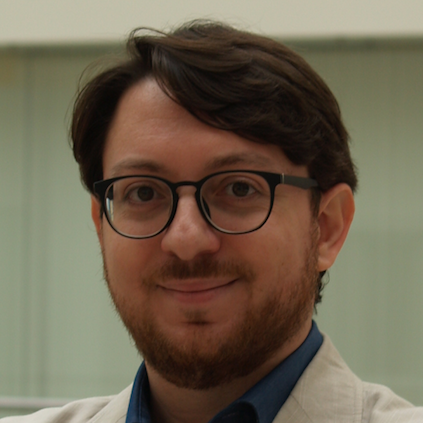
Luca Carlone
Assistant Professor
Massachusetts Institute of Technology
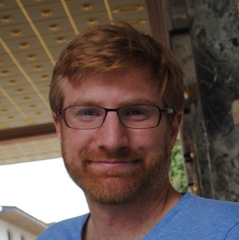
Dan Griffith
Technical Staff
MIT Lincoln Laboratory
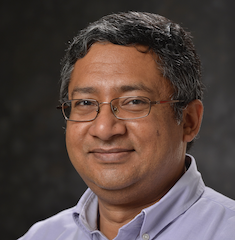
Sanjeev Mohindra
Associate Group Leader
MIT Lincoln Laboratory

Zachary Ravichandran
Computer Vision Engineer
MIT Lincoln Laboratory
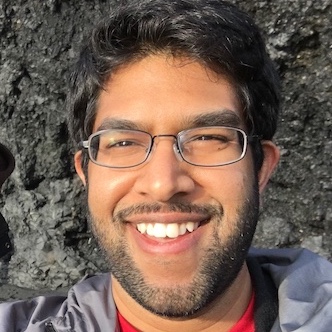
Mark Mazumder
Machine Learning Engineer
MIT Lincoln Laboratory
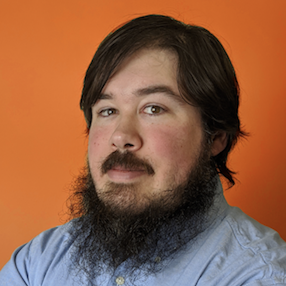
Constantine Frost
Simulation Engineer
MIT Lincoln Laboratory
